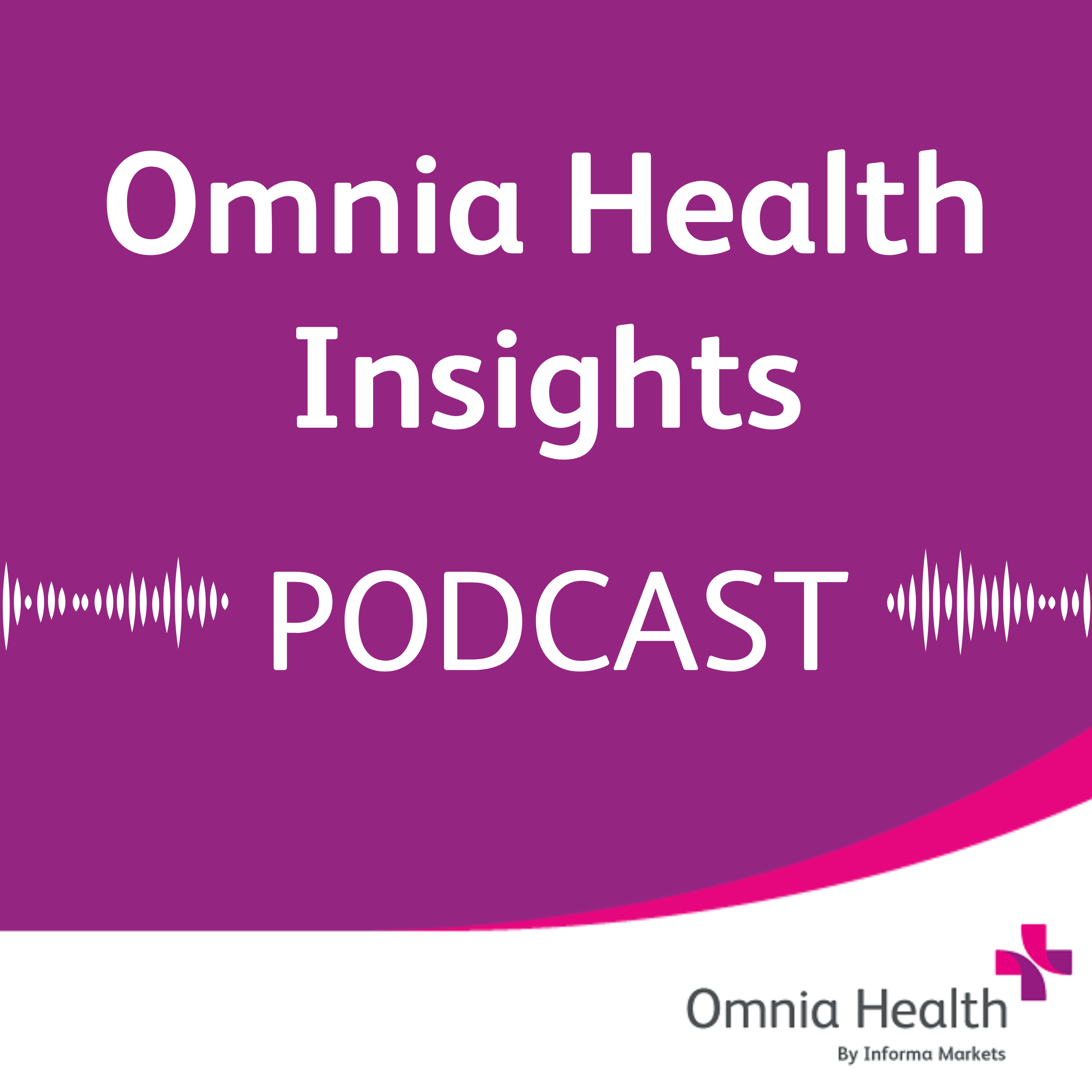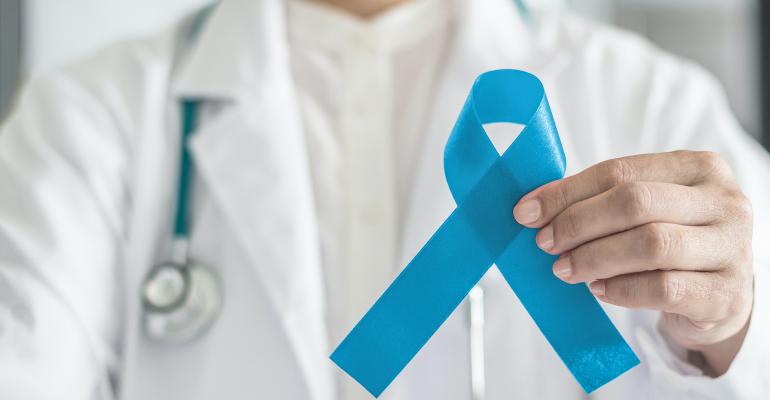This week is international Men’s Health Week, an international week preceding and including Father’s Day to focus on issues facing men’s health.
Physicians and men’s health activists mark Men’s Health Week with awareness campaigns to highlight concerns such as prostate cancer, diabetes, suicide and more.
In our new Patient Talk Podcast, we spoke with Dr Anis Haddad, urologist at Dubai London Clinic, and Dr Ali Razzak, family medicine consultant at King's College Hospital London, to hear their views on the worries that keep men up at night, and why men are still hesitant about opening up to each other and their physician.
Episode 1 - Men's Health: erectile dysfunction, prostate cancer & testosterone
The following is a snapshot of what was discussed. Listen to the podcast for the full conversation.
Up to 60 percent of men worldwide health issues relating to erectile dysfunction, fertility and premature ejaculation, and yet men are reluctant to see a doctor.
In the past men spoke less. Now with social media and the internet, men are more open to speak about issues. They were reluctant in the past, for example because of the stigma associated with “impotence”, a now outdated term; and second, there were taboos which we are now more open to speak about.
Because of the internet and easy access to information men know there’s nothing to be ashamed about, for example premature ejaculation, which affects one man in three.
What advice would you give to men reluctant to see a specialist?
The first thing to understand is that sensitive male issues are like a flu or a cold – it’s the same thing. We see it as a common daily concern. See a urologist if you see symptoms. Second, there are better treatments available these days, compared to 10 years ago.
What is erectile dysfunction?
Erectile dysfunction is a difficulty in getting or maintaining a satisfactory erection. There could be different factors involved - psychological, hormonal or blood flow. Usually it’s not an isolated sign or symptom. Your doctor can test for these, and any abnormality can be treated.
In some cases erectile dysfunction sufferers also say they have less motivation or concentration, so testosterone deficiency might be an issue.
How do you increase testosterone?
Testosterone is an important factor in our wellbeing and mood. Men become less depressed and less irritable if low testosterone is boosted.
We are now seeing more and more cases compared to a few years ago. It’s a huge increase – maybe Google or social media has something to do with it. It's not always a sexual issue. Men sometimes say they need to focus more on their work, or they go to the gym and wish to increase muscle mass.
But sometimes men don't need a testosterone boost. A blood test might show that testosterone might be abnormal but oestrogen might be high (we men also have a female hormone), so we shouldn’t boost testosterone. Also, men aged 30 and above shouldn't boost testosterone before first checking their prostate. Second, we need to consider fertility. And third, it's important to check haemoglobin first.
Who does low testosterone levels mostly affect?
We see all men of all ages, from as young as 17 or 18 to people in their 60s or 70s. Most patients are in their late 30s or early 40s, however. Younger people in their 20s can mostly overcome low testosterone - they have muscle and motivation.
What is prostate cancer?
Prostate cancer is one of the commonest cancers in men – it affects one man in seven. However it can take 10-15 years to develop in men, and if we discover it in the first or second year we can cure it: there is an early detection tool.
Usually we recommend men over 50 to get tested for prostate cancer on a yearly basis by taking a blood test.
There are also two risky groups over the age 40: the black population and men with a family history of prostate or breast cancer. We recommend that they also get tested on a yearly basis.
All other men should get tested every two to three years for peace of mind.
What else needs to be done to promote men’s health issues?
We need national campaigns. We have women’s health campaigns, but the male equivalent exists less and men don’t have knowledge of men’s health issues.
It has however improved in recent years. Male patients discuss issues between themselves to a greater extent.
But in general it can’t be changed overnight; it takes years to create awareness.
Are there differences in awareness between the UAE and the rest of world?
In the UAE we mostly have a young population, and so people here are mostly young and active. Many, if not all, are on social media – so they read, see and hear about men’s health issues. We see more cases here compared to other countries or societies, for example where physicians formerly practised.
Episode 2 - Men's Health: cardiovascular disease, diabetes & mental health
The following is a snapshot of what was discussed with Dr Ali Razzak. Listen to the podcast for the full conversation.
What are your thoughts on the high prevalence of diabetes and cardiovascular disease in the Middle East?
In the UAE there are a million people with diabetes, about 17 percent of the population. Cardiovascular disease is the biggest killer worldwide - 30 percent of mortality. In the UAE it's around 40 percent, and within that men are propoprtionally more affecged than women.
In the UAE there's been rapid modernisation, with people going from active lifestyles to more western, sedentary lifestyles, and with that also came fast food - all these factors have increased the prevalence of diabetes and cardiovascular disease.
Given that the prevalence is so high and men are so reluctant to see a physician, how do we ensure that men get the treatment they need?
Men tend to put things off. It's just the way we are. We should talk about it and increase awareness among men. There are many campaigns to increase awareness among women, like cervical cancer - these don't translate across to men. There's Movember; but I believe it should be pushed all year round.
If men are put off from seeing a physician, can technology play a powerful role, for instance can men talk to an AI or chatbot?
Technology is a massively growing area of interest. People are better connected, but not necessarily in better contact with each other. There are interesting apps in development with AI-based decision making algorithms, where programs can direct you to the right place if you have questions. There are smartwatches recording your pulse - this could be a prompt for men to see their doctor.
Are younger people more inclined to take more interest in their health?
Millennials are the most health-conscious generation ever, partly because of unprecedented access to health information. There's a lot of social media bombardment, in terms of looking good. The availability of superfoods too has led to a dramatic increase in awareness. However, there are issues unique to Millennials, for example an addiction to technology resulting in body dysmorphia and sleep anxiety. The jury is out in terms of whether this generation is healthier.
Are emerging trends like vaping a concern?
Yes, it's a big worry. It's not healthy and it's not safe. The reality is that it poses new health risks, including chemicals like diacetyle that can cause lung cancers and serious lung injuries, and paradoxically it's encouraged younger generations to try smoking. We need to invest in more neutral research.
Are there exciting innovations to be aware of in the treatment of diabetes and cardiovascular diease?
I'm a big believer of prevention. We have enough data available from blood tests to piece together a picture of overall risk. If screened early, issues can be reversed. For those who are affected, there are new technologies, for instance sensors under the skin to measure blood sugar that is synced to the smartphone, and there is development of artificial pancreas - a device pumps insulin into the bloodstream.
Why is mental health such a challenge for men to confront?
Three-quarters of suicides are done by men. Men simply aren't as good as women as talking about their feelings. We tend to bottle things up. When things reach crisis point, then men wil seek help. Early prevention is key.
It's a cultural thing as well; as men we soldier on and get on with it if we've had a bad day.
Men also have higher levels of addiction to smoking and alcohol, and exhibit symptoms differently, for example anger.
Is there a technology or a national campaign that can get men to open up about their feelings?
There are apps out there and questionnaires you can take online. If you don't feel comfortable enough talking about things with your friends, it's easy to log on and speak to a therapist online.
With the advent of telemedicine, the access to trained therapists in mental health is at our fingertips. But we need to talk to friends and family, and there needs to be campaigns to promote mental health. It's only by talking about it more that we can normalise it.
What are the warning signs to look out for?
There are core symptoms of depression. It's a persistent low mood or feeling for at least a two week period, or you lose interest in the things you used to enjoy. Early morning waking could be a sign, or sleeping too much. Being agitated is a symptom, and anger, and losing concentration could be a sign. Finally, recurring feelings of worthlessness or death.
What are the treatments available?
First, we need to diagnose someone. Depression is associated with reduced levels of serotonin, so we can offer an antidepressant to increase serotonin. But in itself, mental health is multi factoral.
Biologically we would treat through medication, and psychologically we may offer sessions with a therapist. If you're not keen to someone there are apps out there. I encourage people to go out and do exercise. But much depends on the severity of depression.
Are there regional differences?
The prevalence is on a simlar level between here, in the UAE, and in the UK where I formerly practised. There is more work to do in terms of acceptance. There was a stigma around 15-20 years ago in the UK, whereas now it's on par with diabetes and heart disease. We know also that a happier workforce is a more productive workforce.


